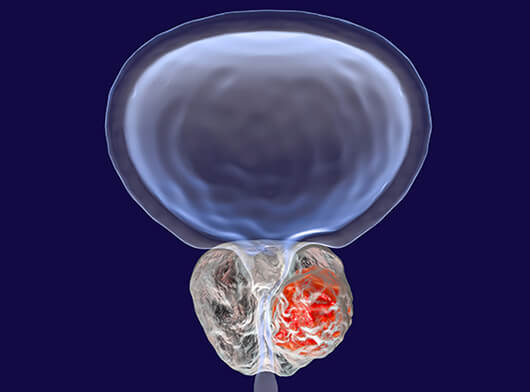- Clinical Examination
- Imaging
- Laboratory
- Digital rectal exam (DRE) - The doctor inserts a gloved, lubricated finger into the rectum to examine the prostate, which is adjacent to the rectum. If the doctor finds any abnormalities in the texture, shape or size of the gland, further investigations may be recommended.
- Transrectal Ultrasound for initial evaluation of the prostate.
- Multiparametric MR imaging of prostate- A tool that uses the interaction of radio waves and magnetic field, which is processed in a high-speed computer system to produce scan pictures and aids in a detailed, informative study about the prostate tissue, its blood supply and its extent.
- Special sequences study like contrast study (special dye injected through the veins), perfusion and diffusion are used to characterise the lesion better.
- PET-MRI fusion- A PET-CT Scan is followed by an MRI Scan of the affected organ, and the images are fused using dedicated post Image processing software. This helps derive image fusion and enables accurate interpretations when required.
- PSMA PET-MRI - It is a tool used to provide more information in diagnosing primary prostatic tumours and in their staging.
- Bone scan- To look for any bone metastases from the primary prostatic cancer.
- Transrectal USG guided Prostate Biopsy is done if initial test results suggest prostate cancer.
- Blood test - Prostate-specific antigen (PSA) - A higher than normal level of PSA found may indicate prostate infection, inflammation, enlargement or cancer. The doctor may recommend further tests to confirm the diagnosis of prostate cancer.
- Pathology- The tissue sample taken is sent for further pathology evaluations like Histopathological evaluation (HPE), cytology and Immunohistochemistry (IHC)



.png)
